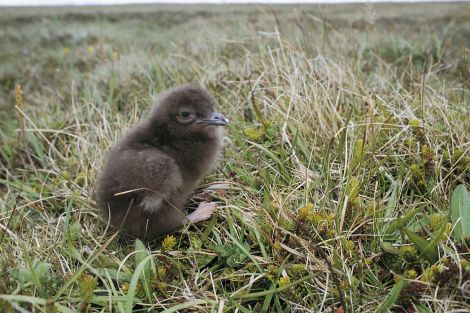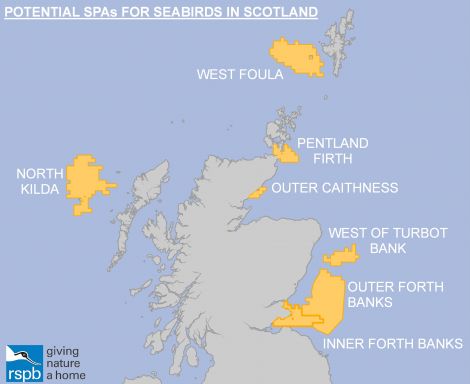News / RSPB demand urgent seabird protection
THE SEA up to 10 kilometres west of Foula is one of seven places being proposed as new Scottish special protection areas to slow the alarming decline in seabird populations.
In a new report, bird charity RSPB Scotland is emanding the Scottish government meet its legal obligations to “urgently address the fundamental lack of protection for seabirds at sea”.
The charity says this is the first step towards safeguarding important feeding areas and reducing the potential impact of damaging developments at sea, including offshore wind farms.
Government figures show that nine out of 11 seabird species being monitored have shown sustained declines since 1986.
Arctic skua numbers are down 80 per cent, Arctic terns are down 72 per cent and kittiwakes are down 68 per cent in Scotland. The RSPB fears Arctic skua could stop breeding in Scotland altogether within the next decade.
The report says the decline is due to climate change affecting the availability of food, and is exacerbated by human activity such as badly placed marine renewable projects and invasion of non-native species.
While the Scottish government is the best of the UK administrations at protecting its marine environment, the RSPB say it is still not doing enough.
They criticise Holyrood for permitting the world’s third largest wind farm in the Moray Firth, despite clear evidence it could harm important seabird populations.
The seven proposed protection areas are considered to be vital feeding areas used by many tens of thousands of seabirds.
The area west of Foula has been proposed specifically to protect the Arctic skua and puffin.
The RSPB intends to put forward a second series of sites in the coming months, along with proposals for more marine protected areas. They say this will help build “an ecologically coherent network of protected areas for seabirds” as required by international law.
Become a member of Shetland News
RSPB Scotland director Stuart Housden said: “We are calling on the Scottish government to designate these seven areas as a first step to creating the full network needed to fulfil the requirements of EU and Scottish legislation.
“With numerous proposed windfarm developments ‘queuing up’ in the areas that overlap key feeding sites for birds, we cannot wait any longer.
“The best feeding sites for seabirds must be given the protection the government’s own scientists say they deserve. The time for action is now.”
Become a member of Shetland News
Shetland News is asking its readers to consider paying for membership to get additional perks:
- Removal of third-party ads;
- Bookmark posts to read later;
- Exclusive curated weekly newsletter;
- Hide membership messages;
- Comments open for discussion.
If you appreciate what we do and feel strongly about impartial local journalism, then please become a member of Shetland News by either making a single payment, or setting up a monthly, quarterly or yearly subscription.





























































